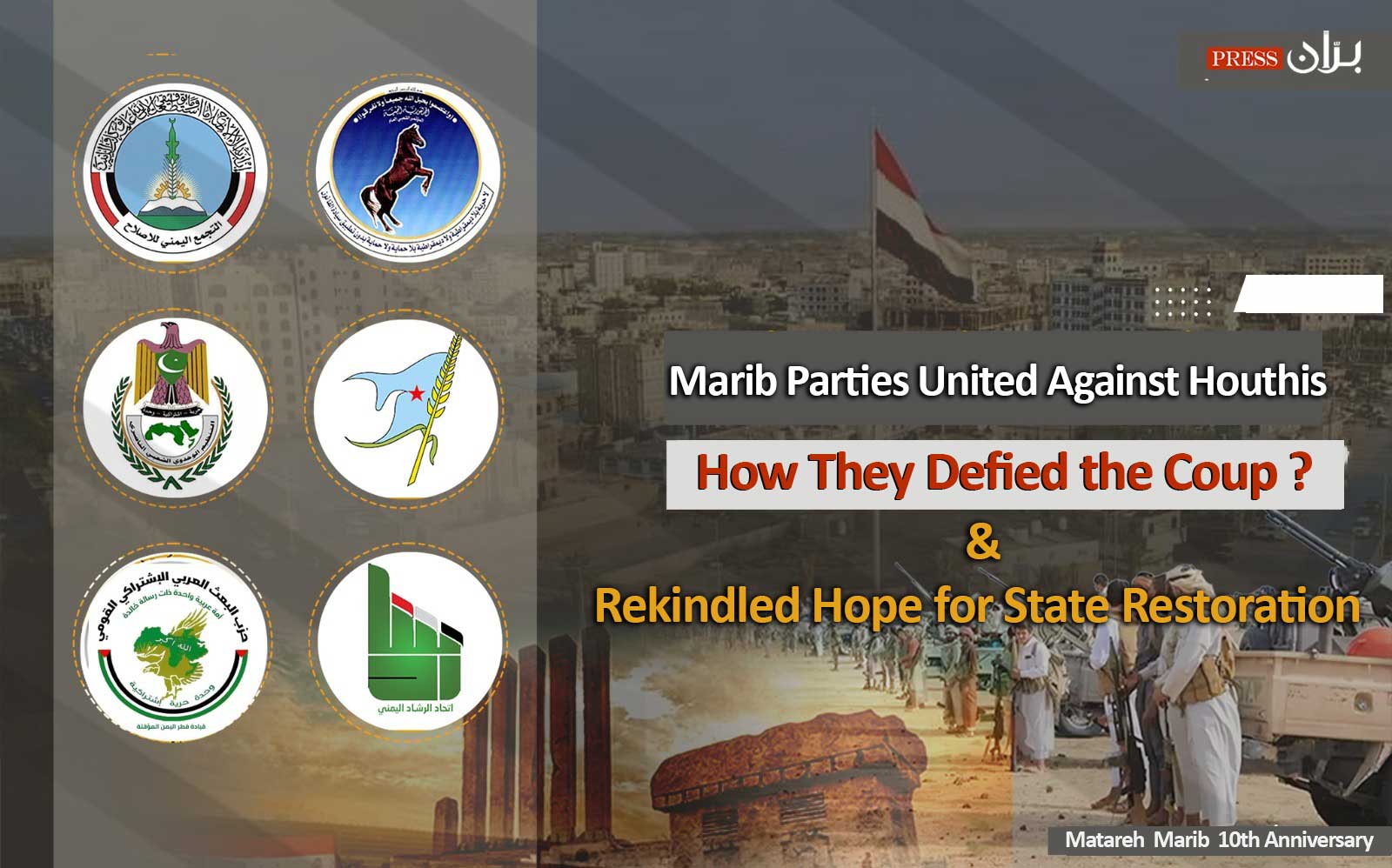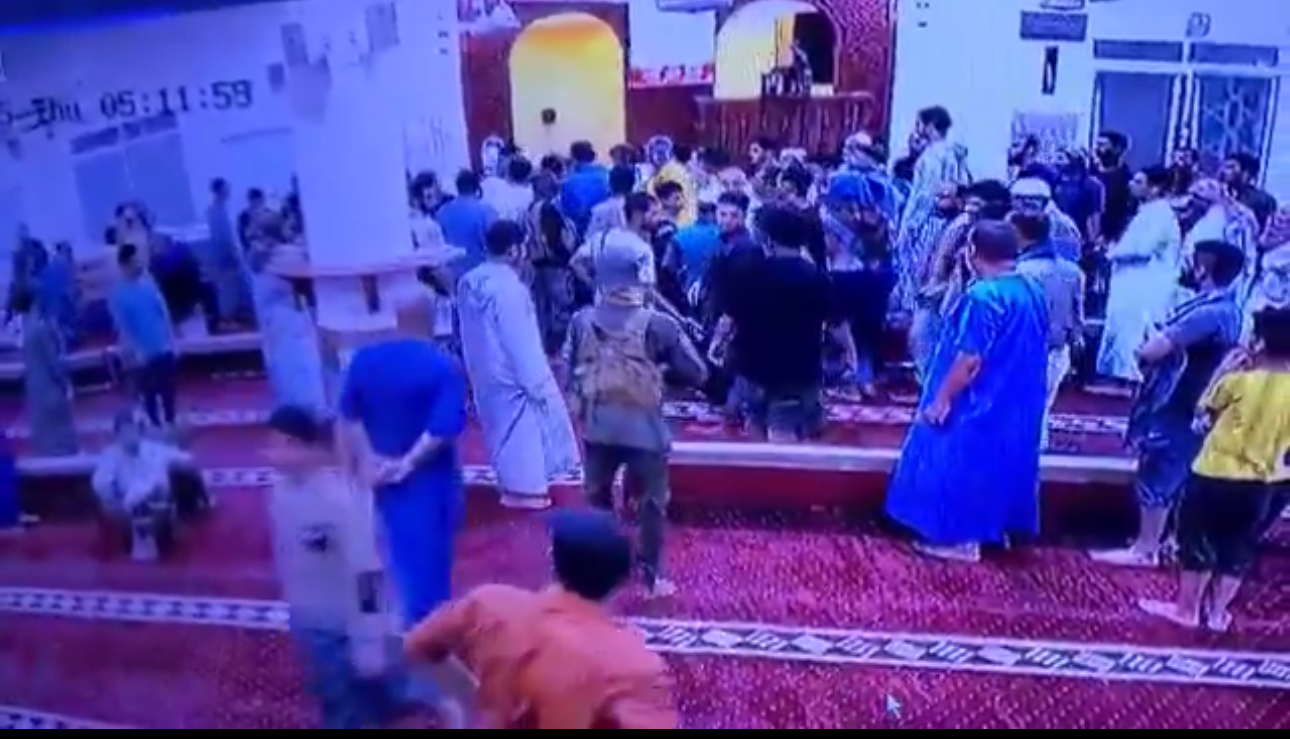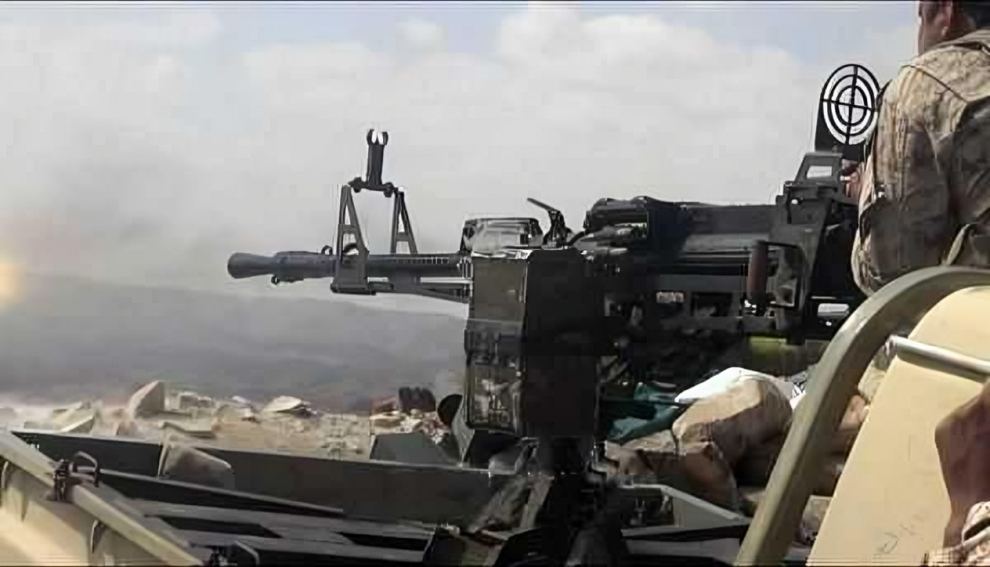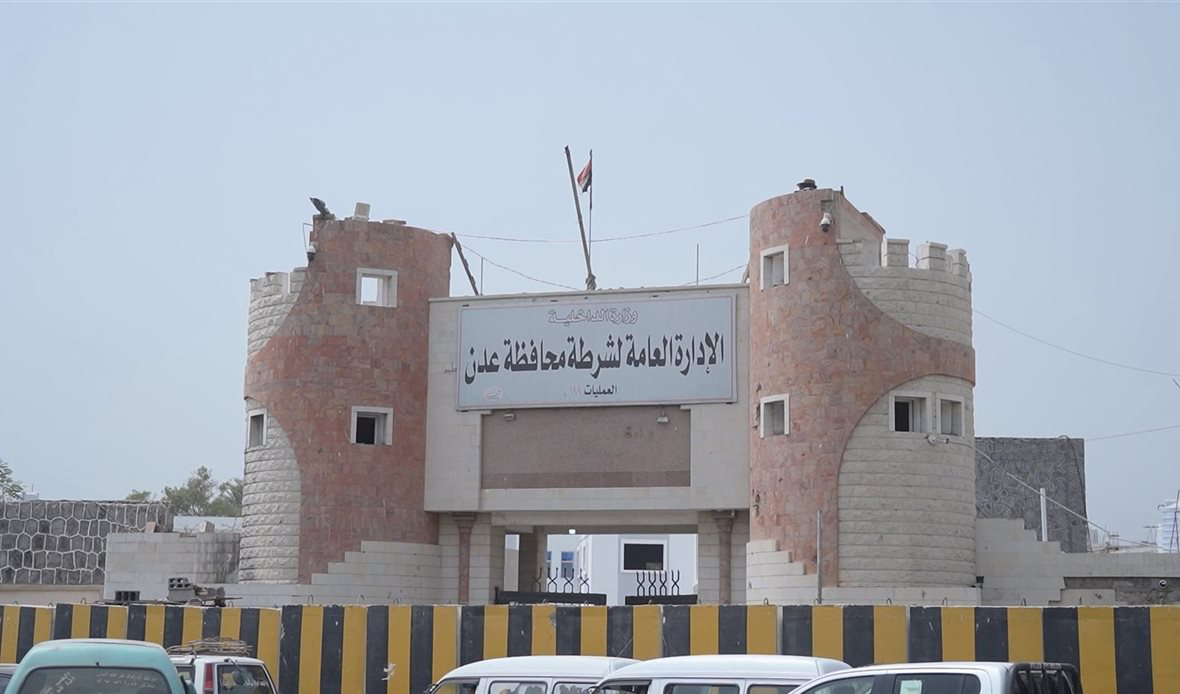
Bran Press - Reporting Unit:
In early 2015, Yemenis were surprised by an alliance formed between the General People's Congress (GPC) in Marib Governorate (northeastern Yemen) and the "Joint Meeting" parties, primarily the Yemeni Islah Party. This alliance, marked by a historic joint statement on January 12, 2015, united the GPC, led by Sheikh Abdulwahed Qabli Nimran, and the Islah Party, led by Sheikh Mabkhout bin Aboud, in a united front against the Houthi advance.
The statement, described as "historic," declared their rejection of the Houthis' expansion through force, vowing to prevent any militia from disrupting the security and stability of the governorate. They pledged their support to the Marib tribes, assembled in "Matareh" on the northern, western, and southern borders of the province, to confront the Houthi forces attempting to seize control of the oil and gas-rich region.
Overcoming Differences
Saud Al-Yousefi, Deputy Head of the GPC in Marib, told Barran Press that the alliance between the GPC and the Islah Party, two powerful parties in the governorate, was formed despite existing differences stemming from the 2011 events. He emphasized that the leadership of both parties, including Sheikh Abdulwahed Qabli and Sheikh Mabkhout bin Aboud, along with all Marib party leaders, decided to unify their political stance, culminating in the landmark joint statement.
Sheikh Mabkhout bin Aboud, head of the Islah Party in Marib, explained that the decision was made while the central leadership of the parties was still in Sana'a, yet to make a decision on confrontation despite the Houthi takeover. He revealed that the leadership, at the request of UN envoy Jamal Benomar, had opted to sign a peace and partnership document with the Houthis, hoping to prevent Yemen from the war and destruction that followed.
However, Sheikh bin Aboud lamented that the Houthis did not adhere to these agreements, treaties, or peace efforts, instead resorting to force to achieve their goals.
Defying Central Leadership
He further explained that the Marib parties, recognizing the Houthis' disregard for agreements, convened and decided to confront them. They called upon their members and supporters to join the tribes in the "Matareh ," defying the wishes and knowledge of the central leadership in Sana'a. He described this move as a commendable step, a testament to the courage and political strength of the Marib parties.
Angry Reactions
The joint statement, along with the unified stance of the Marib parties in support of the local authority and community forces, sparked widespread reactions in Sana'a. Many responses questioned the declared position, smeared the parties, and accused their leaders of betrayal.
Sheikh Abdulwahed Qabli, in a press statement, clarified that the statement represented the collective position of the GPC leadership and members in Marib. He emphasized that the GPC, its allies in Marib, the Joint Meeting, and its partners, including the Islah Party, had pledged to prioritize Marib's interests over personal gains, even if it meant defying the central leadership.
Respecting Local Decisions
Sheikh bin Aboud, in his interview with Barran Press, explained that the GPC considered its branch in Marib to have rebelled against the central leadership. However, the Islah Party leadership in Sana'a reached out to them, and they responded that this was their choice, and they would stand with the tribes. The Islah leadership, at that moment, did not rebuke them, instead saying, "God bless you; you are part of your tribes."
Ali Biqlan, Secretary of the Nasserist Organization branch in Marib, told Barran Press that the central leadership of the parties respected their choices and did not oppose their decisions. He emphasized that they, along with the central leadership, agreed on the principles of political practice, and they had the freedom to make decisions that reflected the collective will of the branch leadership, the interests of the organization, and the welfare of the community in the governorate. He added that the decisions they made were within their authority, given the context of their community.
A Rebellion Against the Center
On January 24, 2015, the Joint Meeting parties in Marib issued a statement condemning their national leaders' meetings with the Houthis, despite the "catastrophic" situation the group had brought upon the country. The statement detailed the Houthis' abuses, describing them as "savage, irresponsible, and reckless," citing their recent takeover of the presidential palace and the confinement of Yemen's legitimate president.
The Marib parties expressed their dismay at their national leaders' willingness to engage with a "coup group that targeted social peace, undermined the state, and pushed the country into the unknown," viewing these meetings as a "lifeline for these criminal coup gangs." They highlighted the irony of the Houthis, who had signed the National Dialogue outcomes with all political factions, betraying the agreement and seizing power through force.
The statement asserted that "any agreements in Sana'a do not represent us in Marib," urging their national leaders to abandon any negotiations with the "militia group that brought the country to its current state."
In August 2014, the central leadership of the state and political parties had agreed to form a committee representing all political forces to meet with the Houthi leader in his stronghold in Sa'ada, northern Yemen. The aim was to persuade him to withdraw his threats to besiege the capital Sana'a. However, hours after the meeting, the Houthi leader declared what he called "the second phase of escalation."
The Marib parties went so far as to openly reject their national leaders' directives. The head of the Islah party in Marib, speaking to a parliamentary committee visiting the province, declared, "We listen and obey our parties within certain limits, but not at the expense of our province. We have no ear for them, no obedience for them if they want to cause trouble in Marib." He added, "We are part of our tribes, and we listen and obey them, not those who want to create problems in Marib."
Marib's Resilience
A local politician, "Yousefi," described the general situation in Marib, stating that when the capital fell, people fled to different locations. Before the intervention of the coalition, political parties and tribal leaders, including the General People's Congress, Islah, Socialist, Nasserist, Ba'ath, and Rashad parties, united to defend the province. He highlighted the crucial role of Marib's governor, Sheikh Sultan al-Arada, in uniting political, military, and tribal forces.
Yousefi explained that the constitutional provision authorizing any province to activate a "defense and security committee" in the event of a state collapse was invoked. This committee, headed by the governor and comprising the military commander, security agencies, and political parties, including the General People's Congress, united against the decisions made in Sana'a, standing with the nation and legitimacy.
In response to the unfolding events, Yousefi said, "We had no choice but to sever our political and administrative ties with Sana'a. We also mobilized and rallied our ranks to confront the Houthis who had invaded Marib."
On January 24, 2015, the security committee in Marib held an extraordinary joint meeting chaired by Governor al-Arada, with the participation of party leaders and political organizations. The meeting addressed the latest developments, particularly after the resignation of the government and the president under Houthi pressure.
The meeting deemed the events in Sana'a a "coup" against constitutional legitimacy and the outcomes of the National Dialogue and the Peace and Partnership Agreement. It decided to disregard any directives issued from the capital, asserting that "the local authority leadership, the security committee, and the political forces are responsible for managing and administering the affairs of the province and its public interests."
The defiance of Marib's political forces against their national leadership is a compelling example of local resistance against a central authority perceived as compromised. The province's unity and determination to defend its interests, despite the challenges posed by the Houthi takeover, highlight the complex dynamics of power and resistance in Yemen's ongoing conflict.
The Secret of Strength and Resilience
Sheikh Ben Aboud, a prominent leader in Marib, attributes the strength and resilience of the Marib stance to the unwavering commitment to resist the Houthis. He explains that the Houthis attempted to use their usual tactics of bribery and intimidation, but these tactics failed to sway the people of Marib. From the very beginning, they decided to confront the Houthis, recognizing that any compromise would be detrimental.
Ali Baqlan, a Nasserist leader, echoes this sentiment, emphasizing that their primary motivation was a deep love for freedom, dignity, and honor, rooted in their upbringing and instilled values of defending the oppressed, aiding the distressed, and honoring guests. He believes these values are the secret to their strength and resilience, a secret often overlooked by those outside the conflict.
Strengthening the Stance and Affirming Legitimacy
The unity of political forces in Marib, alongside local authorities and tribes, has served as a beacon of hope for Yemenis, providing a solid foundation for resistance. This unity has strengthened the province’s internal cohesion, uniting the security forces, army, tribes, and providing political and media support, boosting morale and upholding the institutions of the state.
The Islah Party leader in Marib emphasizes that this level of unity, encompassing political forces, authorities, the army, security forces, tribes, and resistance fighters, is unprecedented in any other Yemeni governorate. This model has inspired other governorates to confront the Houthis on various fronts.
The parties in Marib have played a crucial role in solidifying the legitimacy of the state in the governorate and defending the republican system.
A Historic Decision and a Unified Goal
Abdulrahman Al-Muradi, head of the Rashad Party branch in Marib, describes the stance of the Marib parties as a historic decision. He highlights the unity of these political forces with the local authority, the Third Military Region, security agencies, and all military units in Marib, united in their fight against the Houthi militia.
He emphasizes that the people of Marib, regardless of their political or social affiliations, are united by a common goal: defending their dignity, republic, identity, Yemeni heritage, and Arab identity.
Despite their limited weaponry and equipment, they have managed to defeat the Houthis because they are driven by a strong determination to defend their identity, dignity, their governorate, and their homeland.
National Responsibility
Yahya Al-Qanasi, secretary of the Arab Socialist Ba'ath Party in Marib, describes the stance of the Marib parties as a significant and historic moment, uniting Yemenis around the idea of placing national interests above political differences.
He commends the political parties in Marib for demonstrating national responsibility by setting aside ideological differences to protect the governorate from the Houthis. He highlights their willingness to defy the instructions of their higher leadership and join forces with the national army, popular resistance, and the people of Marib in defending their land and people.
By prioritizing national interests over political and ideological differences, they have set an example for the importance of unity in the face of external threats.
The Fall of the Houthi Gamble
The model presented by Marib has been a subject of discussion among those interested in Yemeni affairs, who acknowledge its success in undermining the Houthi gamble on exploiting political and societal differences to expand and control the country. It has offered hope to the Yemeni people that a unified front of national forces can end the coup, restore the state, and bring peace.
The significance of the “Marib model,” according to observers, is further underscored by the fact that it emerged following a decade of severe political division in Yemen, which paved the way for the Houthis to expand beyond their stronghold in Saada Governorate (northern Yemen) and eventually capture the capital Sana'a.
Saud Al-Yousefi, a leading figure in the General People's Congress in Marib, believes this experience can be replicated and expanded. He emphasizes that the future will see the emergence of new coalitions and political roadmaps at both the national and local levels. He expresses confidence that the people of Marib, who stood strong in 2014 and 2015, will continue to stand firm in their political and national stances, which will undoubtedly make a significant impact.





